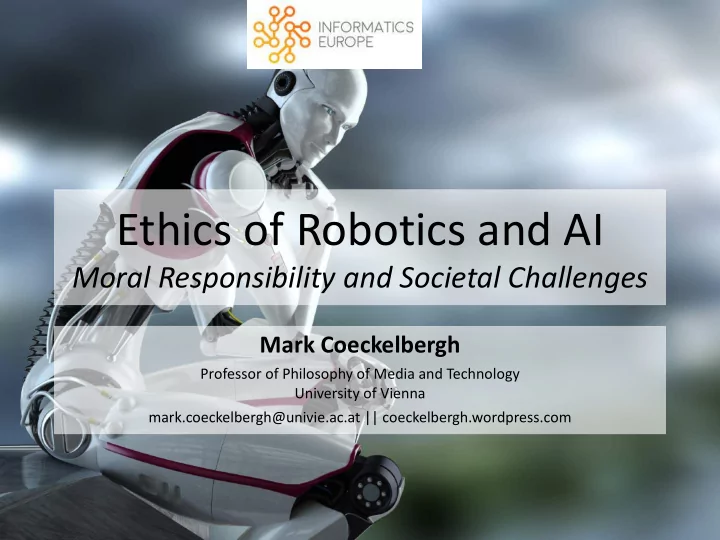

No, it’s not only about principles, values, norms, theory, etc. Challenge is to change technological practices (design, innovation and use) and principles, theory, etc. are instruments to do that
reflecting on experience
What to do? Usually ethics focuses on what (not) to do, but often we agree on what (not) to do; there are also other questions: - Who does what? - How to do things (best)? >> practical wisdom
What to do? Morality: constraints, red lines, sactions Ethics: the good life, the best life
Who and how? How can we work together to ensure that AI and robotics will contribute to a future we want? Also think about PROCESS Experts, citizens, and mediators needed
Who and how? Role researchers, governmental, intergovernmental, and non-governmental organisations/civil society includes: raise awarness and bring people together, initiate new processes: HOW can we reach these goals?
Who and how? Power differences (e.g. big companies versus individual citizens) Cultural differences (global, Europe)
S OME B ARRIERS • Lack of sufficient transdisciplinary expertise • Lack of connections academia – policy makers and short-term views • Insufficient institutional support for more participatory decision making • Not taking into account lessons learnt, re-inventing the wheel
A DDRESS P ROBLEMS • More support for transdisciplinary research • Further institutionalize links academia – policy makers and make room for development of long-term vision • Collaborate with other, non- governmental and non-academic actors in society • More studies taking into account work already done, including work in the areas of philosophy of technology and robot ethics
Recommend
More recommend